There aren’t always enough hours in the day to get a good night’s sleep. And a lack of sleep usually results in a lack of energy and productivity throughout the day.
Energy drinks help this cause by increasing energy levels, performance, and reaction time.
The high-sugar energy drinks also contain many empty calories because the sugar isn’t broken down into energy and ferments, causing gas.
The caffeine in energy drinks can cause gas. However, you can control the situation by limiting your consumption of energy drinks.
Regarding “zero calories” energy drinks, remember that they are sweetened, but with artificial sweeteners like aspartame and sucralose. These unseen culprits have the potential to cause bloating and gas.
Continue reading to know more about how gas affects human health, and how energy drinks cause gas.
What Is Gas?
When you eat or drink, you swallow air, which causes gas in your stomach. The majority of stomach gas is expelled when you burp.
It forms in your large intestine (colon) when bacteria ferment carbohydrates that aren’t digested in your small intestine (fiber, some starches, and some sugars).
Everyone receives gas. In fact, most people pass gas up to 20 times per day due to this condition. When gas is not released via the rectum, it is released via the mouth.
The causes of gas are:
- Food digestion
- Swallowing air
- Intestinal infections
- Medicines
- Dietary habits
- Smoke
The symptoms of gas vary depending on the cause. The following are some common symptoms of intestinal gas:
- Burping
- Bloating
- Farting
Ingredients In Energy Drinks: Causing Gas
One of the primary causes of stomach problems, including gas, is your diet. Gas can be extremely unpleasant.
It may feel as if your stomach is upset and you are unable to eat anything without feeling full. Gas symptoms are usually most noticeable after you’ve had a meal, at any time.
The following are a few ingredients found in energy drinks that may be causing you to feel gas:
Sugar
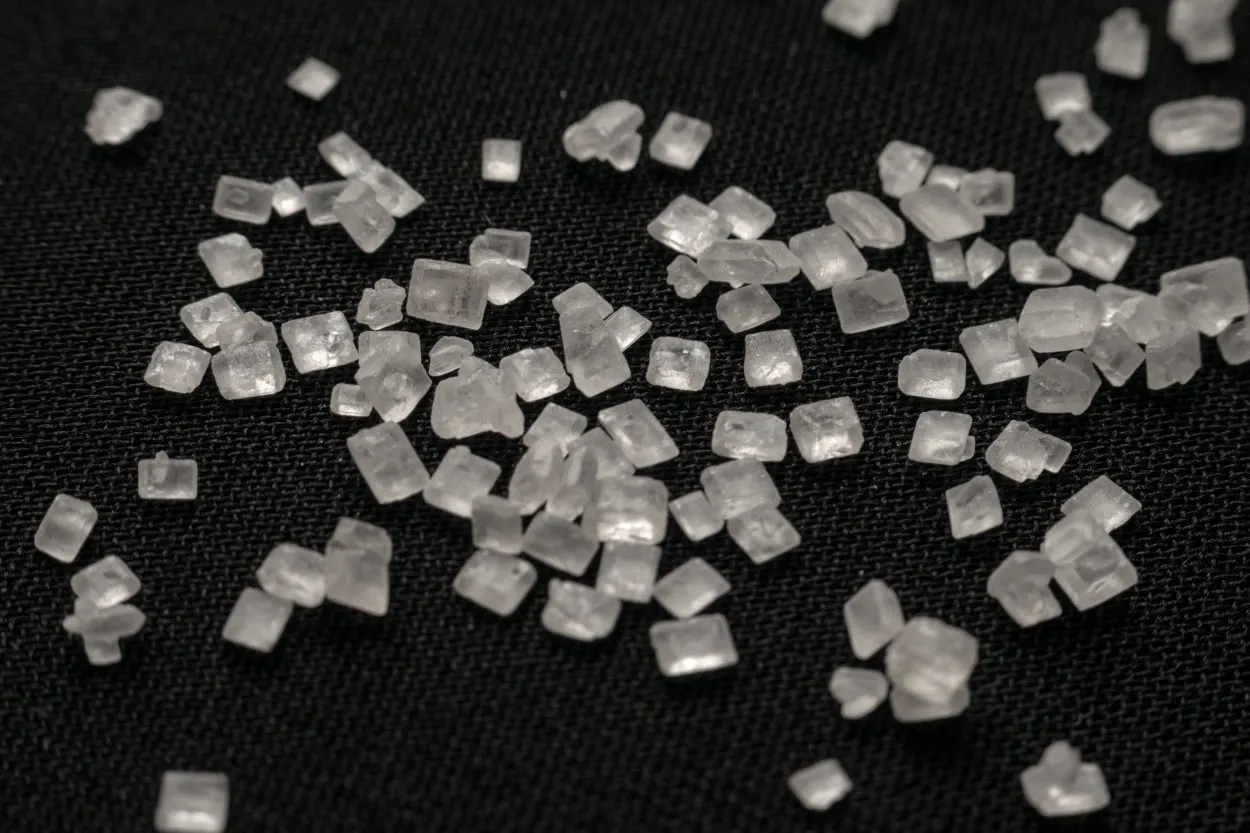
Obesity, Type II Diabetes, cardiovascular disease, certain cancers, fatty liver disease, and other chronic ailments have been linked to excessive sugar consumption.
The American Heart Association (AHA) recommends that men consume no more than 9 teaspoons (37.5 grams) of added sugar per day, and women consume no more than 6 teaspoons (25 grams) per day.
Excess sugar that cannot be broken down and absorbed by the body is left to ferment in the bowels. This sugar travels more slowly through the large intestine, feeding harmful bacteria and yeast and causing gas buildup. This gas has the potential to cause cramping, spasms, and pain.
Some people cannot digest certain sugars, such as lactose and fructose, or sugar alcohols, such as sorbitol.
If you fall into this category, you will most likely experience bloating and gas after eating them. Certain digestive conditions, such as SIBO, increase the likelihood of sugar intolerance.
Other harmful effects of high sugar consumption are:
- Cancer
- Obesity
- Diabetes
- Heart Problems
- Hormonal Changes
Guarana
Guarana, a plant with a higher caffeine concentration than coffee beans, is a common additional ingredient in energy drinks.
Caffeine’s overall benefits, such as improved concentration, memory, and reaction time, may not outweigh the negative effects these energy drinks can have on your digestive system.
It can cause gas and acid reflux by increasing the acidity of gastric secretions.
Other negative effects of guarana are:
- Heart palpitations
- Insomnia
- Headaches
- Seizures
- Upset stomach
- Shakiness
Artificial Sweeteners
Artificial sweeteners are one type of sugar substitute that can be found in a variety of “sugar-free” or “diet” foods and beverages, including soft drinks and baked goods.
Sucralose and other artificial sweeteners are notorious for causing laxative effects in some snackers (bloating, diarrhea, and gas). This could be because bacteria in our gut metabolize Splenda components and produce a fun byproduct: nitrogen gas.
Artificial sweeteners and sugar substitutes can aid in weight loss. However, they are not a panacea and should be used with caution.
Other side effects of artificial sweeteners are:
- Digestive issues
- Increased blood sugar levels
- Higher risk of cancer
- Increased blood pressure
Dietary Fiber
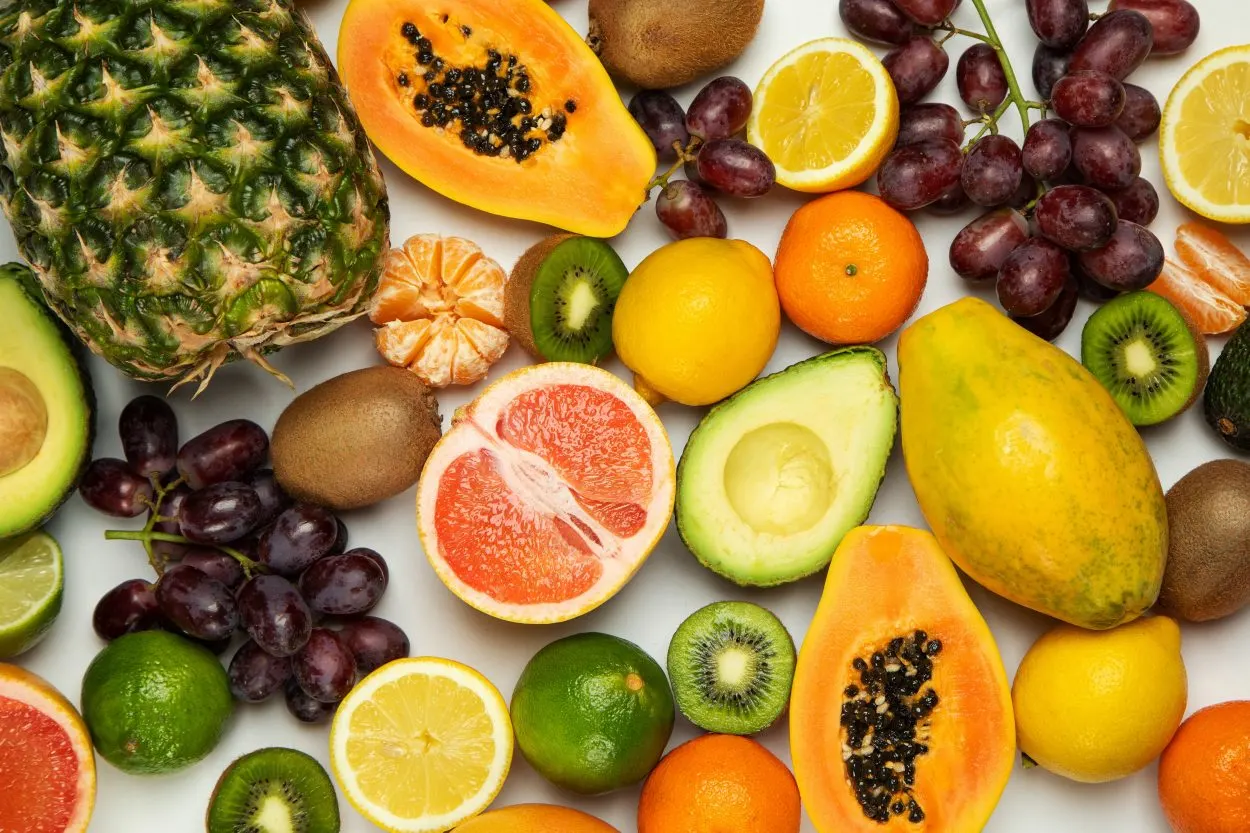
Dietary fiber is a carbohydrate that is indigestible in the small intestine but passes relatively intact to the colon. Certain bacteria in the colon digest fiber (fermentation), producing gas.
A gradual increase in dietary fiber can help to modify and improve gas symptoms. Individual responses vary, and consuming too much of one type of fiber can exacerbate symptoms. It may be necessary to experiment with various fiber types.
Dietary Fiber aids in:
- Lowering blood sugar level
- Lowering cholesterol levels
- Maintaining bowel health
Carbonated Water
Carbonated water is a refreshing beverage that is a healthy alternative to sugary soft drinks, and it is found in nearly every energy drink. Some people, however, are concerned that it may be harmful to your health.
It is water that has been pressure-infused with carbon dioxide gas. This results in a fizzy drink known as sparkling water, club soda, soda water, seltzer water, and fizzy water.
The carbonation in sparkling water causes gas and bloating in some people due to its extremely acidic nature. If you experience excessive gas while drinking sparkling water, switch to plain water.
Other side effects of carbonated water are:
- Tooth Decay
- Burping
Can Caffeine Cause Gas?
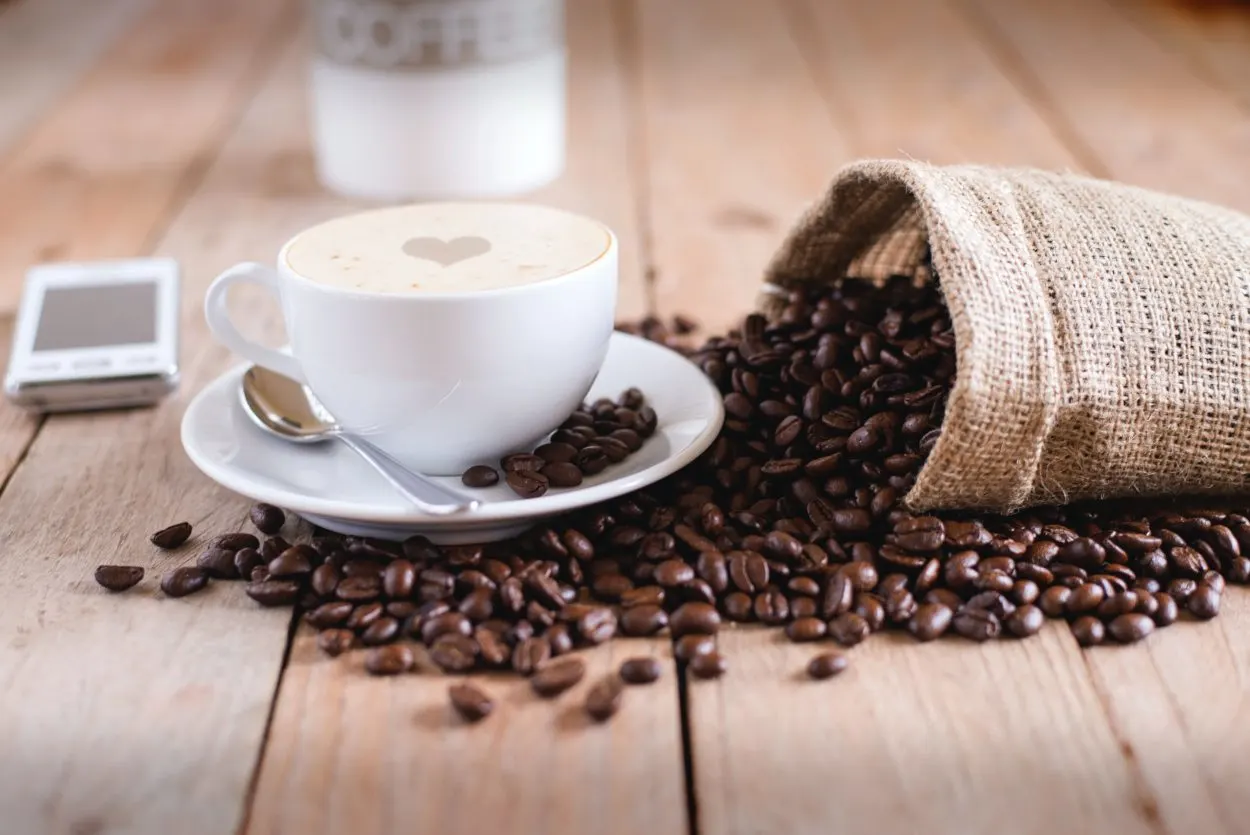
Caffeine is a drug that is derived from plants. It is used to provide people with energy so that they can work and function more effectively.
It can make people feel more energetic, which makes them feel good, but it can also make them irritable and anxious.
Caffeine is not a gas-causing ingredient in general; however, people with sensitive stomachs may experience bloating, and gassy symptoms.
Caffeine increases acid secretion in the stomach, which can worsen symptoms in people with heartburn or reflux disease, as well as aggravate ulcers and cause gas.
If you have chronic acid reflux (GERD), you may experience mild to severe symptoms such as a bad taste in your mouth or throat, tooth decay, nausea or vomiting, and possible respiratory problems.
The FDA has cited 400 milligrams per day for healthy adults—roughly four or five cups of coffee—as an amount not generally associated with dangerous, negative effects such as:
- Insomnia
- Headache
- Anxiety
- Depression
- Skin Issues
- Rapid Heart Rate
- Liver Problems
Can Energy Drinks Make You Gassy?
Yes, energy drinks can make you gassy if they are taken excessively.
An energy drink contains several ingredients that are responsible for causing gas.
Caffeine is a stimulant that increases gut motility or the contraction of the muscles that propel food through the digestive tract. Caffeine’s high acid secretion can cause acid reflux and gas.
When it comes to “zero calories” energy drinks, keep in mind that they are sweetened, but with artificial sweeteners like aspartame and sucralose.
Certain people may experience uncomfortable bloating, gas, and diarrhea as a result of these hidden culprits.
Other ingredients in energy drinks that have been linked to bloating and gas include guarana, artificial colors, citric acid, and preservatives. Energy drinks should be avoided if you have acid reflux because their effects vary from person to person.
Stick to appropriate beverages rather than jeopardizing your health to avoid triggering your stomach or worsening your condition.
Treatment Of Gas
You can improve your health by treating a medical condition that causes excessive gas. Your doctor may recommend some low-dose medications for occasional gas.
If you have a motility disorder such as IBS, prescription medications may be beneficial. Antibiotics can be used to treat bacterial overgrowth in the intestines, which causes gas and bloating.
Most carbohydrate-containing foods can cause gas. A food diary can assist you in determining which foods cause gas. But don’t eliminate too many things.
Many vegetables, fruits, dairy products, wheat products, and beans produce gas, but they are also extremely nutritious.
You can reduce your body’s gas production by doing the following:
- Chew slowly
- Cut back on carbonated drinks
- Limit sugar intake
- Quit smoking
- Eliminate problematic foods (high-fat foods, fried foods, spicy foods and etc)
- Drink tea
- Take peppermint supplements
- Apply heat
Famous Energy Drinks
Rowdy
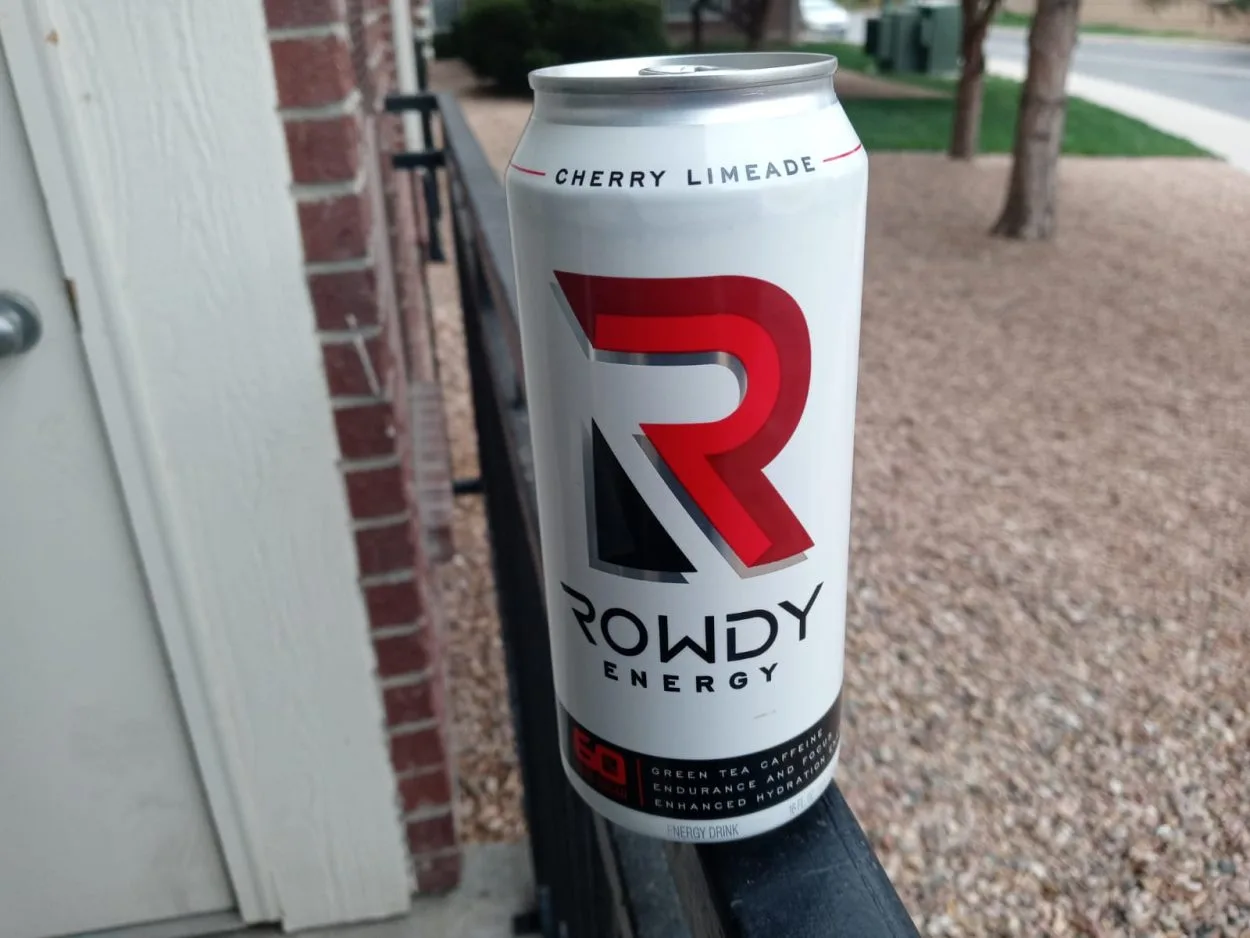
“Rowdy,” the cleverly named energy drink, provides an immediate boost while also storing energy for later use.
Rowdy energy drink contains 18g of sugar and 160mg of caffeine per 473ml serving. It also contains a variety of beneficial elements such as vitamins, essential amino acids, and electrolytes.
Xtend
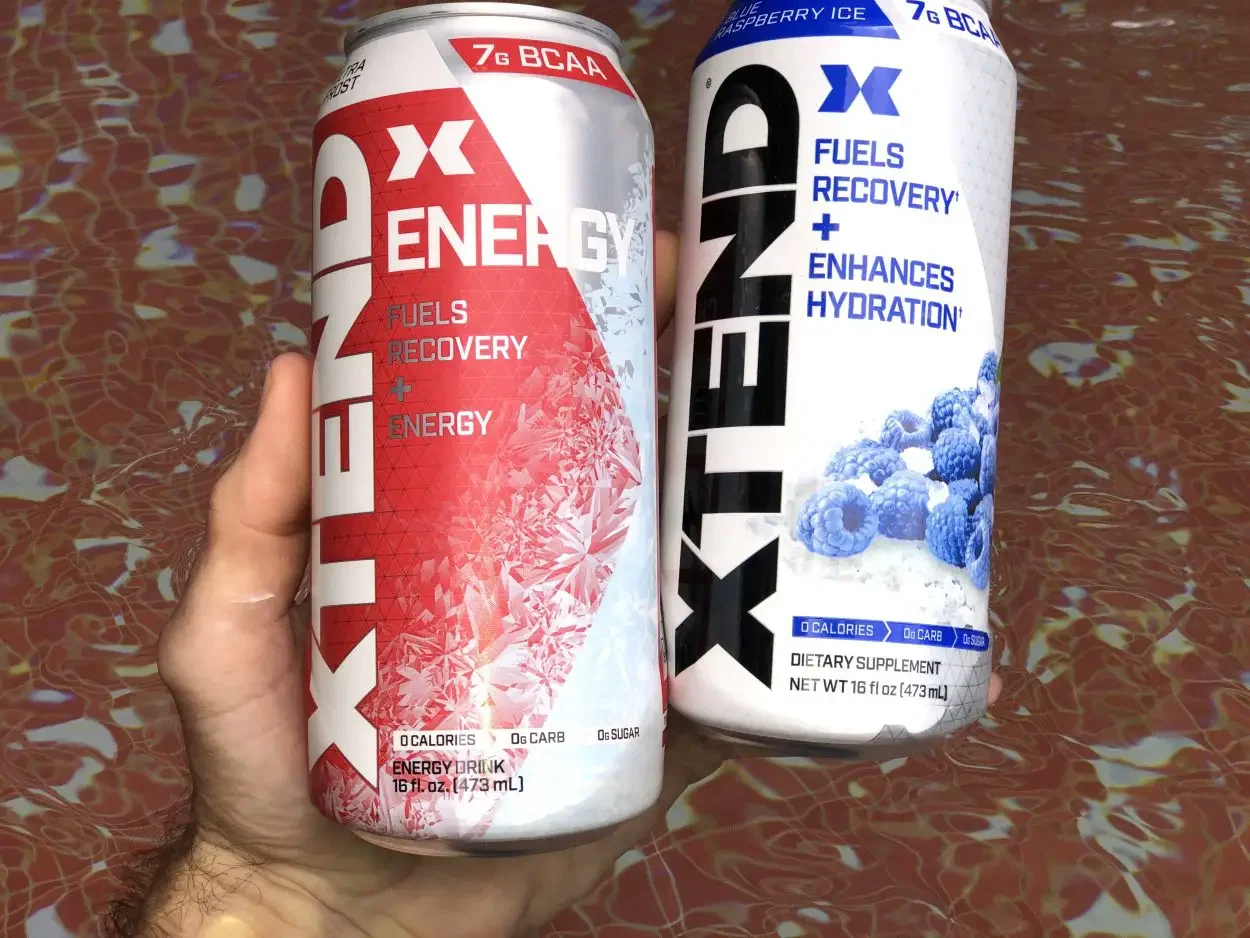
Xtend is a hydrating and healthy energy drink high in BCAAs and electrolytes. It’s a caffeine-free energy drink with 125mg per serving and no added sugar or calories.
Xtend energy drinks are currently available in two varieties. The first is a carbonated energy drink called Xtend, which promotes muscle repair and expansion.
The other is Xtend Energy On The Go, which improves physical performance and recovery.
REIZE
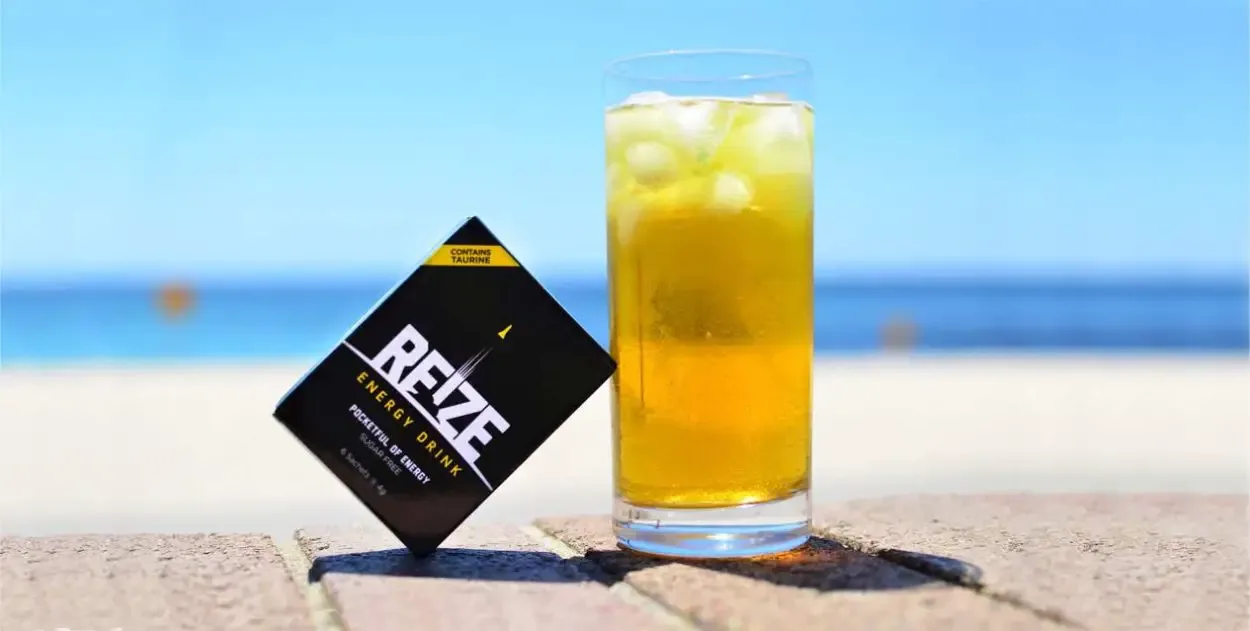
REIZE contains 50mg of caffeine, which is a moderate amount that will not cause stomach upset. It does not, however, help with bloating or indigestion.
It’s also sugar-free and contains a unique blend of taurine, ginseng, B vitamins, and caffeine, which provides me with a long-lasting energy boost.
The best part is that it can be delivered to your home for as little as $1 per serving.
Conclusion
- It’s not all sunshine and rainbows when it comes to changing your diet and lifestyle to avoid gas problems. This includes, among other things, no caffeinated or fizzy beverages or meat.
- It’s excruciating, especially if you’re accustomed to having caffeinated beverages, such as energy drinks, ready first thing in the morning.
- Although many doctors advise people with stomach acid reflux to avoid caffeine, there is no evidence that it causes the condition. Caffeine appears to be safe for some people with stomach reflux if it is not one of their triggers.
- You can maintain control by eliminating the energy drinks that make you gassy. You can go for energy drinks with zero sugar and fizz. If it still is not solving the issue, you can look for natural energy sources such as green tea.

